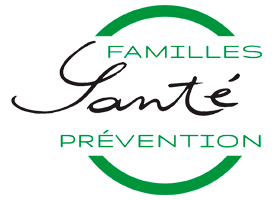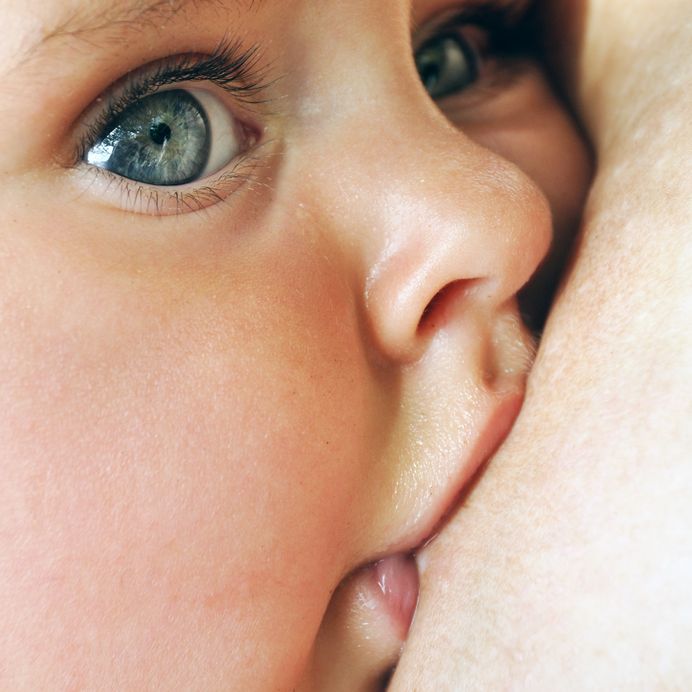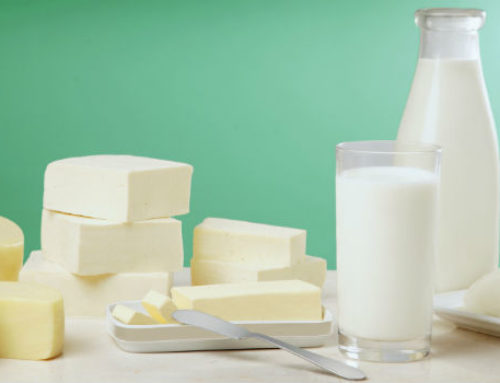Letter No. 122 of the Pr. Henri Joyeux – 16th of June 2016
Dear Reader,
Expectant mothers, parents and grandparents of a new baby. It is also addressed to my colleague Dr. François Bourdillon, new director of French Public Health Agency (Santé Publique France – SPF).
Dr. Bourdillon already knows what I am about to explain. However it is a good reminder to him and his boss, health minister Marisol Touraine, who is seeking to save money to recover from the abyssal debt the French health system has accumulated.
Breastfeeding your child is a choice. It is very important to respect it. Let the mother decide if, when and how long to breastfeed, and help her be fully informed.
On Friday, the 29th of January 2016, the findings of a wide range study published in medical journal The Lancet and funded by the Bill and Melinda Gates Foundation and British Wellcome Trust confirmed the World Health Organization (WHO) recommendations
It recommends that children be exclusively breastfed until the age of 6 months, and partially until age two.
A few advantages:
Breastfeeding is purported to save the lives of 823,000 children per year in the world.
Women – breastfeeding might save you from cancer! In my capacity of oncologist surgeon, overwhelmed by ever increasing numbers of ever younger breast cancer patients, I keep reminding everyone of that fact : Breastfeeding is said to decrease by 20,000 the yearly number of death by breast cancer. By breastfeeding, you reduce your risks of contracting breast cancer! Let’s not forget that every year in France, we lose 11,886 women of increasing younger age to breast cancer (data from 2012 metropolitan France). It has become a social scourge. [1] Thus it is false, wrong and dangerous to pretend that breastfeeding only benefits women from developing countries.
Manufacturers of artificial milks i.e. formula have a very fertile imagination when it comes to slyly denigrating breastfeeding. Meanwhile they propose all kinds of solutions: milks for preemies, newborns, and for all different stages of infants and toddler nutrition: 6 months to 1 year, 1 to 3 years. They offer milks for children with digestive transit disorders, sluggish intestinal transit, children with allergies, reflux issues, colicky babies, regurgitating babies, babies with diarrhea or lactose intolerance… All are helpful solutions for women from all walks of life, so long as breastfeeding is not denigrated for the sake of market shares.
How do they convince doctors and pediatricians? How is only one in 5 children breastfed by his mother in our countries, while almost all children are breastfed in all countries with low or mid-range incomes? In the latter, only one out of three children is exclusively breastfed until 6 months, because manufacturers invest a lot of money in wide advertising billboards.
In 2003, in France, only 56% of infants were exclusively breastfed on the day their mother was discharged from the hospital. Note: Breastfeeding is on the rise, since they were only 45% in 1998. However, it is still very insufficient, as many children are only breastfed for a short time: only 42% of them are breastfed for over 2 months.
In Norway, 99% of infants are reported to be breastfed by their mother upon discharge from the hospital, and 86% are breastfed for at least 3 months. They are 95% in Finland, 90% in Sweden and Denmark, 85% in Germany and 75% in Italy.
Pierre Le Hir, a journalist from French daily Le Monde, wrote regarding the Lancet publication of 29th of January 2016 :
“In wealthy countries, the percentages of breastfed babies is the weakest in the United Kingdom (0.5%), Ireland (2 %) and Denmark (3 %), far below the numbers of Japan (60 %), Norway (35 %), Finland (34 %), the United States (27%), Spain (23 %) or Germany (23%). In France, only 9% of babies are breastfed, and an older study from 2015 estimated the number to be closer to 5%.”
The journalist added :
“Breastfeeding is purported to prevent half the cases of diarrhea and a third of respiratory infections. Wealthy countries, despite the low rate of infant mortality, are still affected by this problem. For breastfeeding decreases by 36% the risks of Sudden Death Syndrome (SIDS) and by 58% risks of necrotizing enterocolitis. The latter disease involves a partial loss of the intestinal lining; it affects preemies and can be lethal.”
Billions in savings
Authors of the Lancet study found that in the United States, raising infant (0-to-6-months-olds) – breasfeeding numbers to 90% (against 49% today) would save the American health system at least $2.4 billion (€2.3 billion) per year on account of preventing early childhood’s diseases.
The study reminds us of the scale of the breastmilk-substitute market. In 2014, this industry was worth close to $45 billion, a value that could increase to $70 billion in 2019. The industry’s aggressive commercial strategy targets health professionals and hospitals. Formulas make their way into birth freebie boxes and mothers’ mailboxes, thereby undermining public efforts to bring up breastfeeding numbers.
The study reminds us of the scope of the breastmilk-substitute market. In 2014, this industry was worth close to $45 billion, a value that could increase to $70 billion in 2019. The industry’s aggressive commercial strategy targets health professionals and hospitals. Formulas make their way into birth freebie boxes and mothers’ mailboxes, thereby undermining public efforts to bring up breastfeeding maternel.
What explains such low breastfeeding rates in France ?
Low support from the medical community
In France, the medical community doesn’t inform women well. In French maternity units, only midwives recommend breastfeeding. Only rarely do obstetricians or pediatricians recommend it. Homeopaths do, and this is less surprising since they are more ecologically-minded.
A premature return to the workforce
Women have to get back to work too early, normally around 10 weeks after birth. Most women delay until the third month, and have to make sure to find a place in state-run, full-time or drop-in daycare. In other countries, such as the United States, they go back to work at 6 weeks postpartum, and may delay until 6 weeks later if they accept not to be payed. Going to daycare, the child is psychologically torn away from his mother too early and society tries to make mothers feel better by using the pseudo argument of early socialization, and pretending that children’s health will be better taken care of in daycare than home. Consequently, day-cares have become a playground for vaccine manufacturers and the dairy industry lobby, that constantly provides them with new products.
Compensating for the low numbers of daycares could be accomplished by extending maternity leave for mothers that chose to breastfeed. Today, they don’t really have a choice. Giving birth to a child is a social investment for the whole country, a responsibility and a guarantee for the future, and it should be encouraged by public authorities. How does it make sense to assimilate maternity leave to a kind of sick leave?
Our society should reflect on the possibility of establishing a parental salary, equivalent to the minimum wage (called SMIC in France), entitling mothers to a retirement and social coverage. It could first be limited to parents who could share it: the mother or the father may choose to stop working to take care of 3 small children under 5. One could imagine a scheme where the parent making that choice would have priority over others to come back to work, while his or her employer could save on social contributions.
Moreover, sick leave is very costly to society, and mothers continually have to rely on it to deal with many early childhood health issues: ear infections, rhinitis, gastroenteritis (or stomach bugs), dermatitis, chronic obstructive pulmonary diseases, and fevers, which oblige them to keep their child home so as not to communicate their diseases to others.
Also, some medication hinders milk production
Mothers, beware of all medications that hinder milk production (Parlodel® and other Bromocriptine medications [2], or Dostinex which are “prolactine” inhibitors). It took the French medication agency a long time to give up bromocriptine or Parlodel®. Many new mothers taking it had been unable to breastfeed their newborn after having been prescribed such medications. It was prescribed too freely and without any explanation or discussion with the mother, no matter that she might not have wanted to “prevent lactation.”
It was about time: only in July 2013, the French medication agency ANSM, together with the National College of Obstretic Gynecologists (CNOF) and the National College of French Midwives (CNSF) officially declared that the benefit-risk factor was no longer in favor of lactation inhibition. In 2014, the European Co-ordination group for Mutual recognition and Decentralised procedures – human (CMDh) declared that such medications should only be prescribed for “imperative reasons”, such as when the mother has AIDS or “to avoid increased stress subsequent to the loss of a child during or shortly after labor”. [3]
This reassessment put the limelight on the existence of serious side-effects such as cardiovascular effects (strokes, heart attacks, high blood pressure), neurological (mainly convulsions) and psychiatric (hallucinations, mental confusion). These side-effects were long known, but the lobby of formula was stronger.
In our opinion, alternative lactation inhibitors are not indicated
If the mother chooses not to breastfeed, her milk will dry up within a few days. If despite this, the mammary glands keep on manufacturing milk, she could pump it, progressively decrease pumping frequency to allow her milk to dry out. After that, she could give it away to the closest milk bank where could be used for preemies that may greatly need it.
We should also inform mothers that took the prolactin inhibitor, that alarmist discourses meant to make them stop breastfeeding are false. They were probably told that pollutions transfer into breastmilk. If they wish, they can chose to breastfeed again, by putting their child to the breast for 5 to 7 days (and possibly assist the process with pumping), milk will come back, and they can breastfeed their child normally for months.
I publicly said and repeated for years that such medications were dangerous. But no medical journalist bothered to broadcast what I said. Obviously, my position is not popular with the pharmaceutical industry, since it is based on the protections of children, mothers and families. Nevertheless, after reports of complications, the medication agency (ANSM) tasked with informing the public became more prudent.
This agency is experiencing a major crisis. On June 15, 2016, French daily Le Figaro challenged the former leadership of ANSM: “The ANSM is decimated. The boat is taking water from all sides.” And “We are no longer just the cash register of the pharmaceutical industry.” You sow what you reap!
Breastfeeding is ideal for children’s health
Upon birth, the production of milk is a physiological process. If the woman chooses not to breastfeed, lactation will stop by itself within two weeks without medication. Milk production can trigger transient pains (lasting a few days) in 30 to 40% of women.
What maternal milk contains :
– Bacteria that build up the intestinal immunity of the child at the level of the gut lining. They are bifidobacteria and lactobacilli. They hinder the multiplication of harmful bacteria, and of good bacteria which could become pathogens should their numbers become too great.
– The acidic intestinal content limits bacteria’s consumption of iron. The iron binds on a protein, immunity protector lactoferrin. This protein destroys the lining of dangerous bacteria by triggering the manufacture of specific substances protecting against harmful bacteria.
– Other substances contained in breastmilk are protective: lactadherin protects against rotavirus, the virus causing gastroenteritis, otherwise known as the stomach flu (so you can avoid the rotavirus vaccine which is actually dangerous ! [4]) ; and oligosaccharides protecting against colibacilli and fungus albicans candida.
Note that One bottle of formula wrongly affects the baby’s intestinal flora for two weeks. Obviously, mothers aren’t told this information.
So, Going from complication to complication, they try one brand after another, and are not told breastfeeding could help.
– Breastmilk also contains shor chain fatty acids, i.e. substances which nourish the end of the intestines – colon and rectum – whose cells renew every 5 to 6 days. They prevent an excessive proliferation of microbes that could trigger putrefaction of foods in the intestine (rotting). A breastfed baby’s stools do not stink. They have an orange color, are semi fluid, and a little granular. Breastfed babies don’t have constipation issues. The stools of dairy-based-formula fed babies are pasty, light-beige-colored and smelly.
– It provides complex sugars to Baby. Besides, thanks to the fermentation the intestinal flora facilitates, short chain complex sugars (oligosaccharides) can manufacture short chain fatty acids. This underlines the importance of the intestinal flora.
– Breastmilk also contains specific proteins, including lactoferrin, antibodies manufacturing immunoglobulins, and casein Kappa, defensin, fibronectin, a fraction of essential complements to babies’ immune defenses.
– It provides Baby with immunologically competent white blood cells: leucocytes and macrophages, lymphocytes T4 absorb bacteria that could be dangerous for babies.
– Breastmilk has enzymes such as lysozyme, a protein manufactured by white blood cells, and present in breastmilk but also in saliva, tears, even in egg whites. This enzyme destroys dangerous bacteria’s lining. This explains why it was called a “natural antibiotic”.
– Finally, it contains growthfactors, meant to assist the baby’s growth in the first year of his life ( a human baby usually take around 5kg/11 lbs within the first year). It also contains 7 neuro-trophic factors specific to the construction of his nervous system. They support the process of memorization started in utero (his mother’s smell and voice), baby’s capacity to recognize his loved-ones, to play and prepare to talk and later walk. `
No need to vaccinate yet: vaccination must remain a medical act, done/given upon prescription.
Breastfed children do not need to be vaccinated, except if one of his/her parents have contracted the hepatitis B virus. Fortunately, this is very rare.
Another exception is if mommy is an HIV carrier. However, treating the child with a specific pediatric syrup [4] keeps the transmission of the virus from happening. Then his/her mother can continue breastfeeding without endangering her child.
Ideally, the child would/should be breastfed exclusively for at least 6 months, and partially for another year. This would immunologically complement morning and evening meals. And it is recommended by the World Health Organization.
A child is partially breastfed if he is at least breastfed in the morning before mom goes to work, and in the evening when she comes back. Then baby does not need to be vaccinated, because he is immunologically perfectly protected for 6 months after weaning.
In Nordic countries, children are breastfed for a long time, and they are vaccinated less and later in life. In France, vaccination protocols should be reviewed to take breastfeeding into account. But obviously the vaccines manufacturers won’t do anything to this end.
How to stimulate lactation
Most “galactagogue” foods, i.e. foods that increase lacteous secretion, are vegetal: they include fennel, star anise, millet, watercress, lettuce, quinoa, cooked barley, alcohol-free beer, dates, lightly cooked lentils or chick peas (i.e. al dente), celery, almonds, walnuts, hazelnuts and all fresh fruits in season, organic if possible in order to avoid pesticides as much as possible.
Among available plants, you can make a mix of galega or flower leaves or seed of alfalfa galega with nettle and verbena in the following proportions :
Galega (flowers and leaves)………………………………… 20 g or 2/3 oz
Nettle (Urtica dioica, leaves) …………………………… 20 g or 2/3 oz
Lemon Verbena (Aloysia triphylla, leaves)……………………………… 20 g
–
Use one to three pinches of the mix in one mug of boiling water and let infuse for 10 min. Filter and drink. Drink two mugs a day for 5 to 7 days.
In France you can find Galactogil in granules in pharmacies in boxes of 210g (7.4 oz) ( 1 tbsp = 10g/ 0.35 oz). It contains dried Galega extracts, malt (beware, it contains gluten!), calcium phosphate, and saccharose.
Homeopaths essentially use low dilution Ricinus Communis.
Children breastfed by their mother do not need vaccines until 3 to 6 months after weaning.
For premature children, mother’s milk contains more immoglobulin A (IgA) than milks manufactured by full term babies. IgAs form a layer inside of their gut.
They inhibit helicobacter pylori in the stomach as well as pneumococcus and hemophilus in the respiratory lining.
We agree with the new Director for the French Agency for Public Health, who wished “the Agency would be more in tune with the times, have a grip on society and current events and respond pedagogically to the interrogations of the greater public on (issues like) vaccination, endocrine disrupters, radiofrequencies and even polluted sites and soils”.
I will end this article with my response that will soon be published in French Magazine Parents:
“Vaccinating a two-months-old is risky, because children’s immune defenses are not mature until the age of two. It requires an adjuvant be added into the vaccine to stimulate their immunity. Aluminum was withdrawn from animal vaccines because of its link to serious complications in animals. Why would they keep it in children’s vaccines ? A healthy mother deciding to breastfeed her child as recommended by WHO, exclusively for 6 months plus one year mornings and evenings can wait until her child turns two to vaccinate.”
In France, the Diphteria Tetanos Polio (DTP) vaccine is compulsory, and I agree with this. It is fine to vaccinate children with DTP vaccine, without adjuvant. The pharmaceutical industry used to manufacture aluminum-free DTP vaccines. However, it set up a scam in order to make 3 more vaccines compulsory by the time babies are two months old. The three diseases they want to vaccinate against are: first, pertussis, which over which they have induced panic, via their marketing. The second is meningitis, transmitted through influenzae b: meningitis vaccine is necessary for parents and in immune-deficient children. Third, the vaccine against hepatitis B is indicated if one parent carries the virus. This new 6x vaccine isn’t danger-free. It is not useful to most children born healthy from healthy parents.
I recommended that refugees would be vaccinated first, since most of them are not healthy due to disastrous hygiene conditions in war-ridden countries, like tuberculosis, diphtheria… Refugees could bring back some diseases that have long disappeared in our countries. Instead of wasting public money vaccinating at least 8 million healthy elderly against the flu, let’s use it to vaccinate populations in need of vaccines.
Continue signing and passing along our petition so that the French minister for health requires the pharmaceutical industry to manufacture an aluminum-free Diphteria Tetanos Polio vaccine again! 1 million and 33.500 persons have already signed. Tell people around it, so nobody can say that he did was not informed.
I remain at your service, the service of families and their children. Je reste à votre service, à celui de toutes les familles et de vos enfants.
Pr. Henri Joyeux
Sources
[1] Pr. H. Joyeux, Dr. Bérengère Arnal (gynecologist), Comment enrayer l’Epidémie des cancers du sein et des récidives, Le Rocher 2010 (How to stop the breast cancer epidemy and its recurrences). Pr. H. Joyeux, Femmes si vous saviez, Ed. FX de Guibert, 2007 (If only women knew).
[2] Bromocriptine-based medications (such as Parlodel® et Bromocriptine Zentiva®), prescribed in 2.5 mg doses to inhibit or prevent lactation after a birth or an abortion were reassessed by ANSM. This reassessment was initiated after some serious cardiovascular and neuropsychiatric side-effects were reported.
[3] See https://www.allodocteurs.fr/actualite-sante-parlodel-un-medicament-anti-allaitement-sur-la-sellette_14562.html
[4] All dangers are explained in my book: Pr. H. Joyeux, Vaccins comment s’y retrouver? (Understanding vaccines), Le Rocher, 2015.
[5] The French research team INSERM1058 UM1 led by Professor Philippe Van de Perre in Montpellier tested this syrup with 15000 children from 4 African countries. The World Health Organization considers that it eliminates AIDs transmission by the mother through breastfeeding. Without the syrup, there are 10% risks of transmission.
La Lettre du Professeur Joyeux is an independent and free information service est un service. It specializes providing the wider public and families with disease prevention information. Click here to subscribe to the letter.
This health advice is provided free of charge by this organization and cannot be considered as personal medical advice. No treatment should be initiated solely on the basis of this content. It is strongly advised to consult a properly licensed health professional to seek responses with regard to one’s health and well-being. No information or product mentioned on this website is meant to diagnose, treat, atone or cure a disease.
You have a Personal Health Question ? ( Confidential response) or you wish to enjoy our exclusive services?
Become an exclusive member of our association for one year by clicking HERE.






